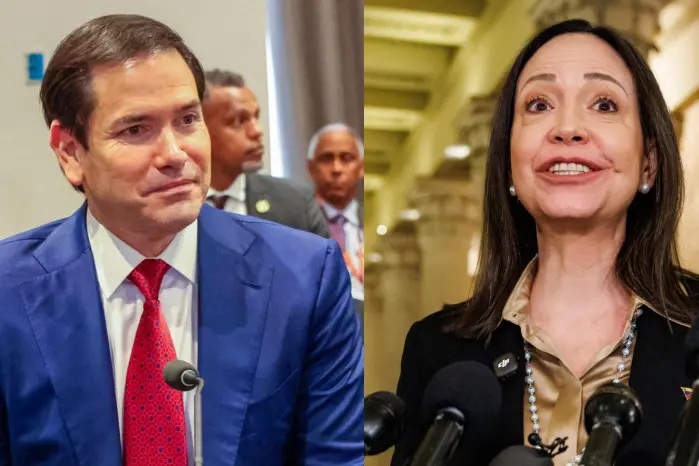MEDIA WATCH: How Republicans Got Trump Wrong

GOP leaders assumed the president’s campaign-trail rhetoric would give way to Washington realities—the trajectory they’d followed themselves writes McKay Coppins in The Atlantic
DURING last year’s election—back before Washington Republicans awoke to the dangers of an erratic and impulsive commander in chief tweeting his way into “World War III”—there was a common argument deployed by party loyalists in defense of Donald Trump: He’ll behave himself once he’s in office.
GOP leaders generally acknowledged (on and off the record) that their nominee’s reckless campaign-trail persona was not suitable for the leader of the free world—but they insisted there would be a difference between Candidate Trump and President Trump. He would surround himself with competent advisers; lean on the good judgment of his running-mate Mike Pence; and mellow out as he confronted the full burdens of the office.
Pay no attention to the nervous nellies fretting about Trump’s temperament, said Senate Majority Leader Mitch McConnell at the time: “I think Donald Trump will understand when he’s sworn in the limits of his authority. He’ll have a White House counsel. There will be others who point out there’s certain things you can do and you can’t do. And it’s not quite like, you know, making a speech before a big audience and entertaining people. And I think he’s a smart guy, and I think he’s going to figure that out. So I’m not worried about it.”
Don’t get hung up on the frivolous personality issues, said House Speaker Paul Ryan: “It’s not just a choice of two people, but two visions for America”—and Republicans needed a president who would sign their conservative legislation.
Ironically, this sentiment was perhaps best articulated by Tennessee Senator Bob Corker—the Republican chairman of the Senate foreign relations committee who has emerged in recent days as the leading Republican voice sounding the alarm about the president’s volatility and incompetence.
The caricature
In a 2016 interview with the Tennessean newspaper, Corker dismissed what he called the “caricature” of Trump as an impetuous man who should be allowed nowhere near the nuclear football.
“Once you come into the Oval Office, and you understand the tremendous decisions that you have to make and the magnitude of those and the effect that it’s going to have on the world,” Corker said, “I think that there’s a tremendous soberness and typically when you go in, you can end with lots of very highly qualified people around you.”
Only now, nine months into the Trump presidency, are Republicans like Corker admitting how badly they misread the situation—and just how catastrophic the consequences to their wrongness could be.
“For many within the party, there was still a belief that once Trump became president, the weight of the job would cause some changes,” said Doug Heye, a Capitol Hill veteran who worked for House Majority Leader Eric Cantor. “This is not necessarily misguided—the presidency has, in one way or another, changed every previous inhabitant.”
Like many of his Republican friends in Washington, Heye said he was “swept up in Inaugural enthusiasm” at the outset of Trump’s term—convinced that the conservative administration the president was assembling would work with the GOP-controlled Congress to push through major policy victories. Instead, the Republican legislative agenda has all but ground to a halt, and the White House has remained in a near-constant state of chaos as a rotating cast of beleaguered aides tries and fails to rein in the mercurial commander in chief.
These days, Heye told me, he’s feeling less sanguine: “I’ve never forgotten what one House member privately told me on the day before the Inauguration: ‘This won’t end well.’”
Tea Partiers
One of the main reasons so many Capitol Hill Republicans were confident that Trump would settle down and conform to the conventions of the office was that they had followed similar trajectories themselves. In the years since the Tea Party wave of 2010, scores of conservative lawmakers have arrived in Washington fresh off campaigns in which they gave provocative (and sometimes racially charged) stump speeches, made outlandish promises to their grassroots constituents, and generally pledged to act as anti-establishment insurgents hell-bent on disrupting the D.C. status quo.
They attempted to make good on those promises, at least for a while, with dramatic filibusters, government shutdowns, and fiscal-cliff brinksmanship.. But over time, many of those same lawmakers have found themselves conforming to the conventions of Washington. They’ve realized that the responsibilities of their office—like constituent services, and dull committee hearings—do not lend themselves to the kind of constant drain-the-swamp revolution that they had campaigned on. And so, they’ve adapted.
“The Tea Partiers came to Congress and assimilated into the customs and norms of the body,” a senior Senate GOP aide told me. “They aren’t ‘go along, get along’ by any stretch of the imagination, but they generally act within the norms of the office. President Trump hasn’t assimilated from reality-show TV to the norms and traditions of the presidency.”
“You can argue that’s good; you can argue it’s bad,” the aide added, but “it puts a lot of people on edge … and that can be said for friend and foe alike.”
Not everyone in the party is buying this, of course. Nick Everhart, a Republican consultant who has advised many Tea Party candidates over the years, told me anyone who watched the 2016 election unfold and thought Trump could emerge as a paragon of presidential restraint once in office was fooling themselves all along.
“Very few people ever really change,” Everhart said. “And if they do, it takes an enormous amount of self-awareness and an acceptance of fault or responsibility. I mean, come on … there was no way anyone could believe they were going to get a different version of Donald Trump. There is only one version.”





